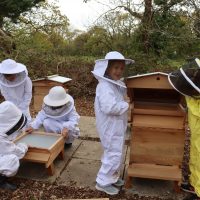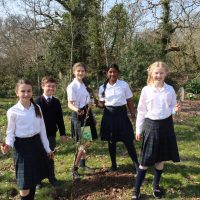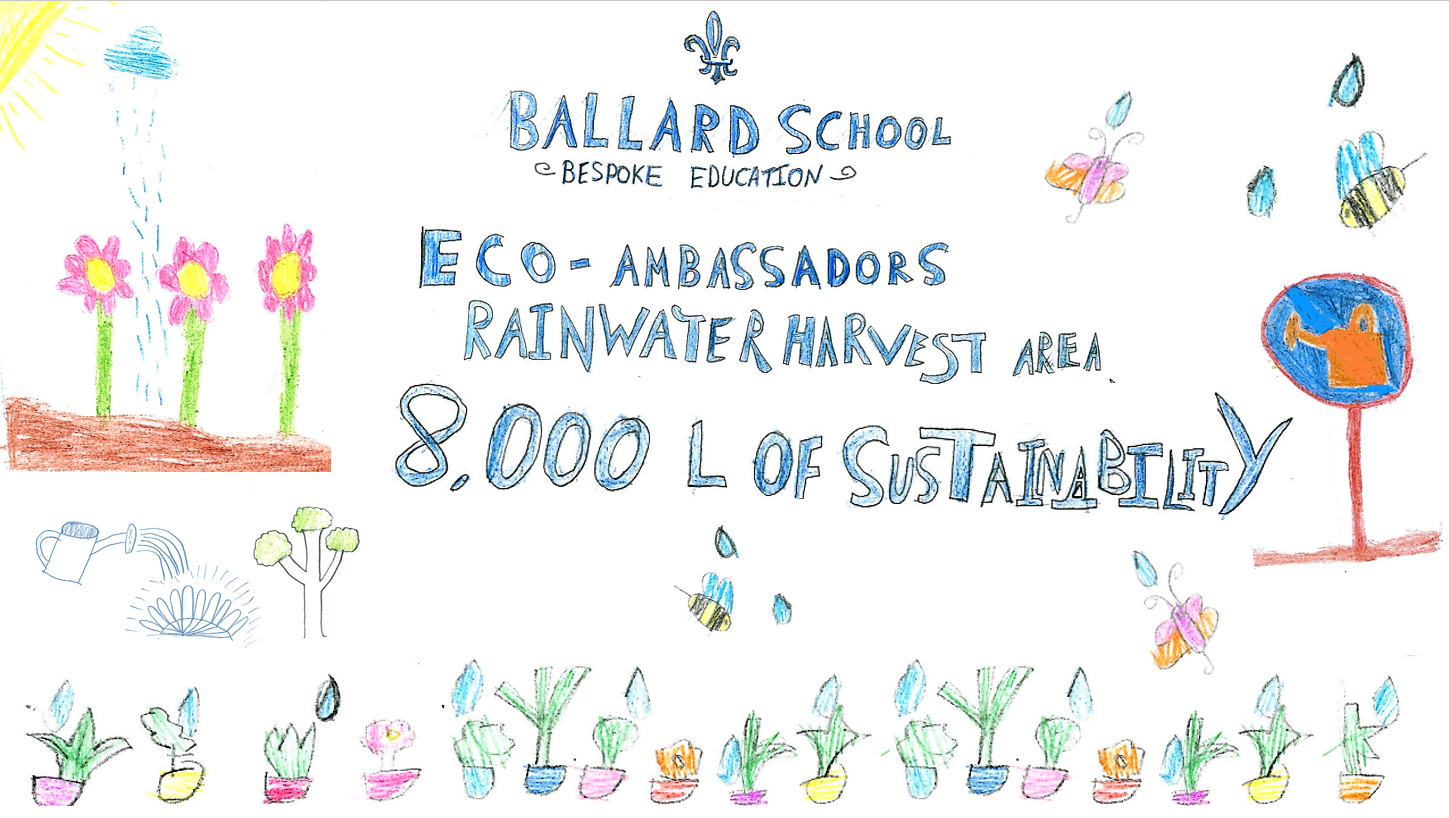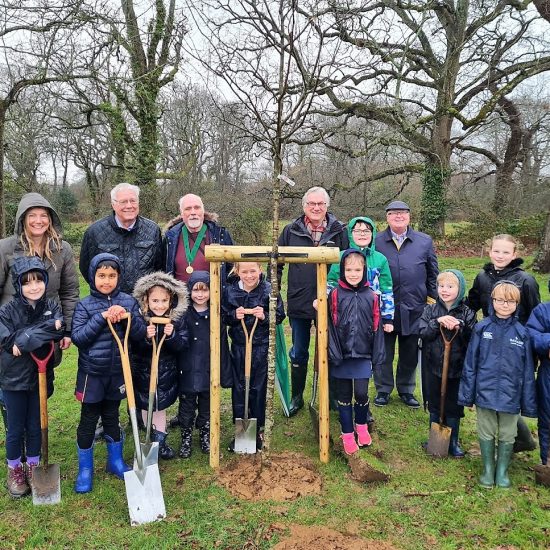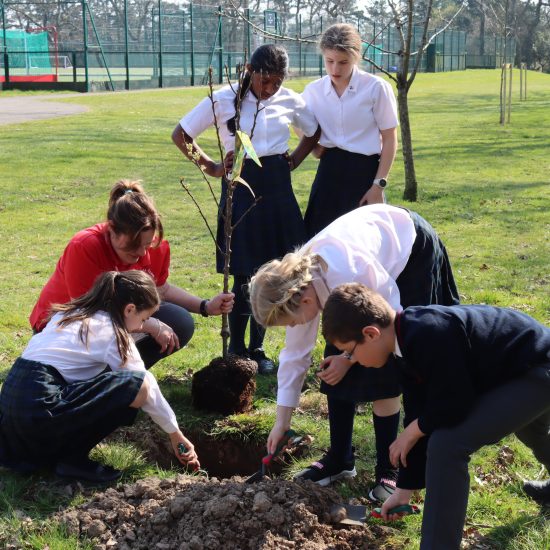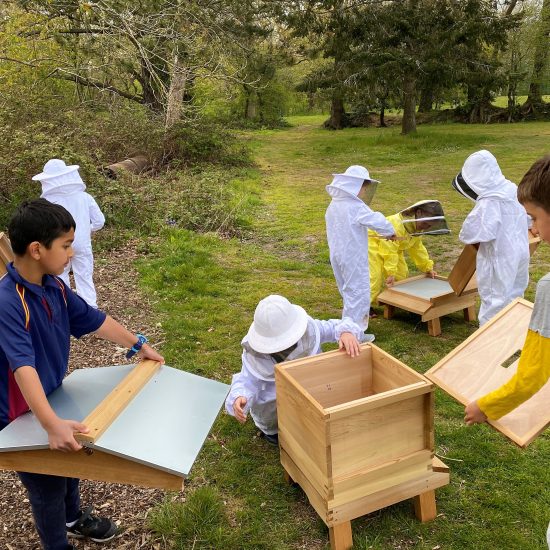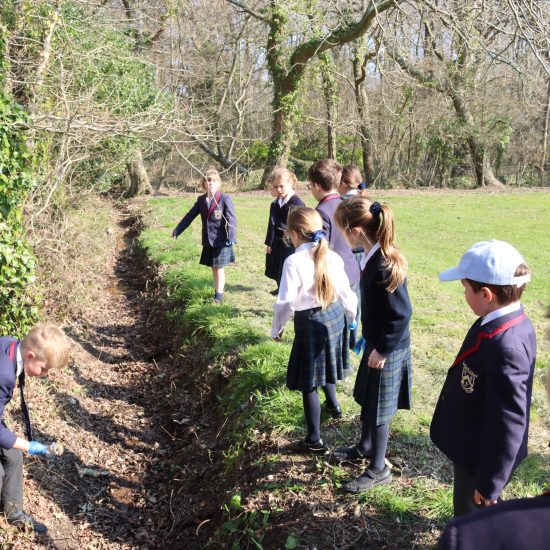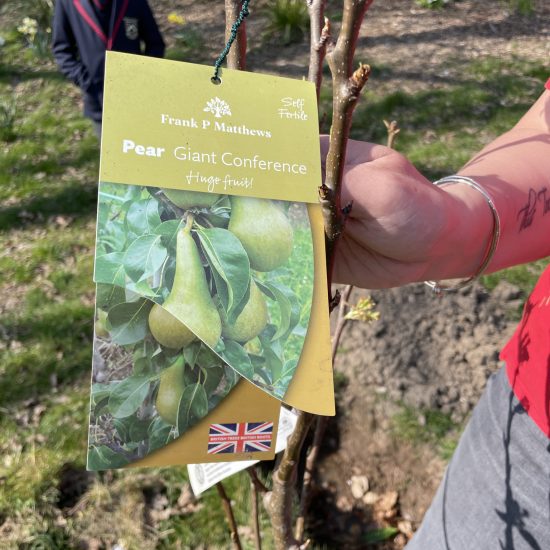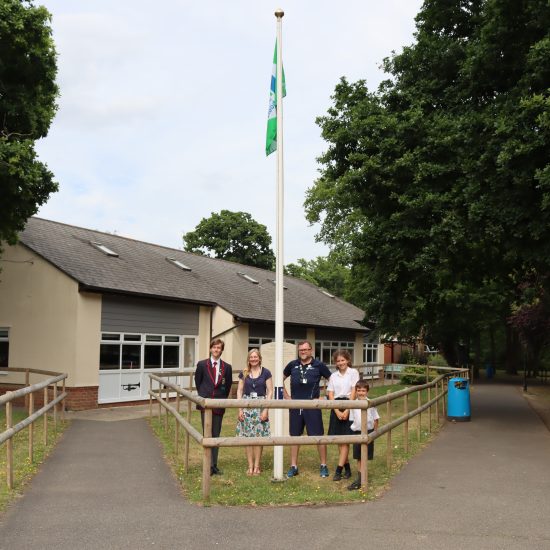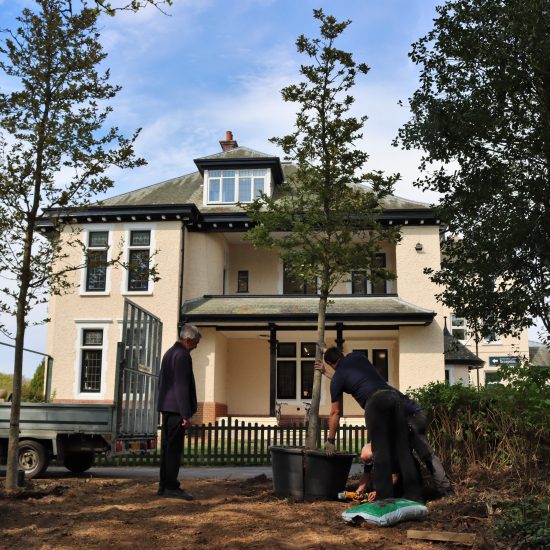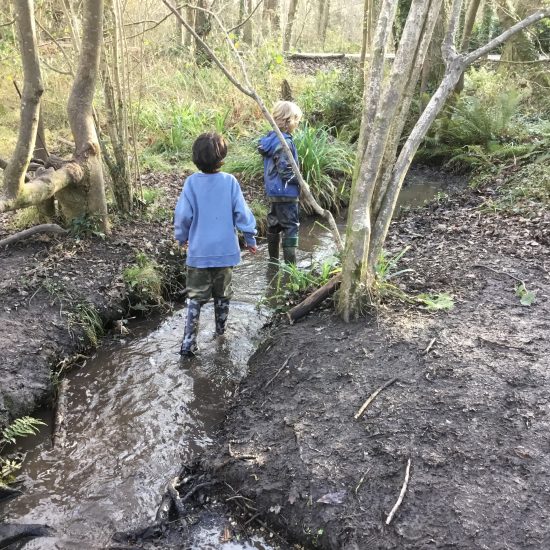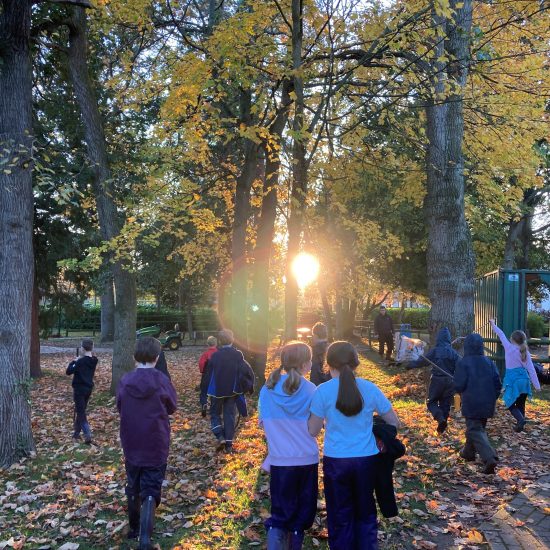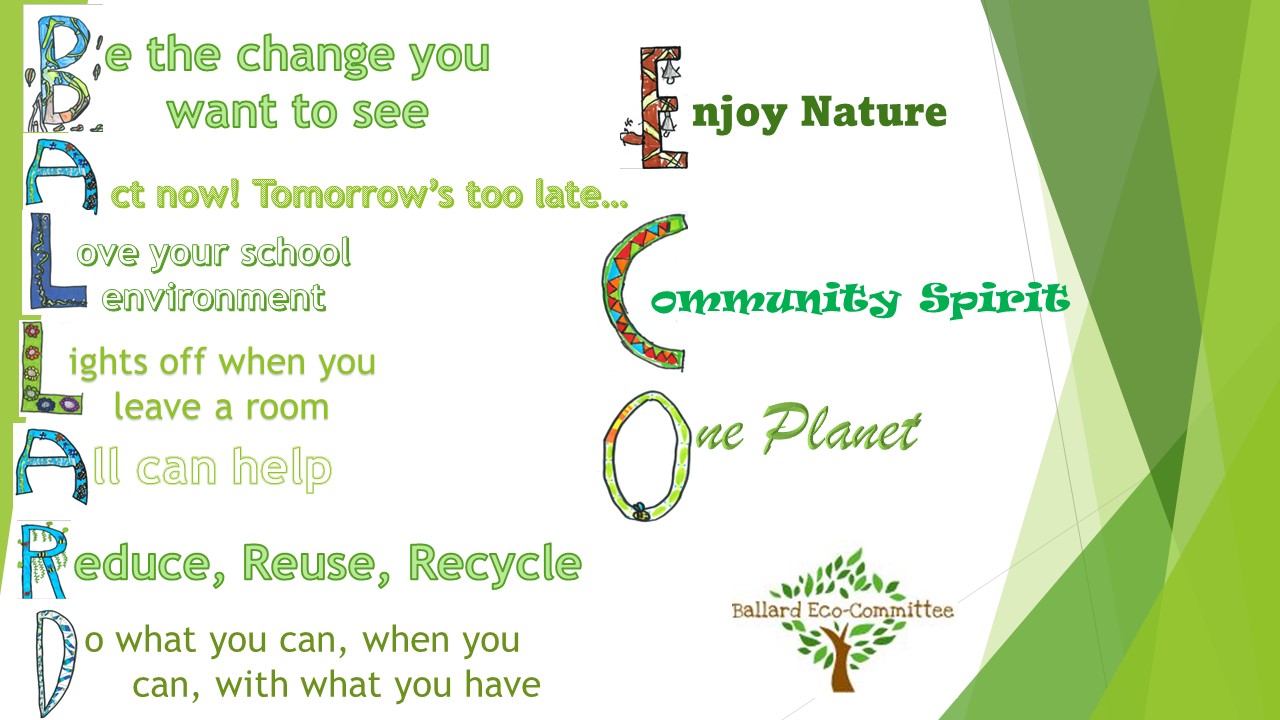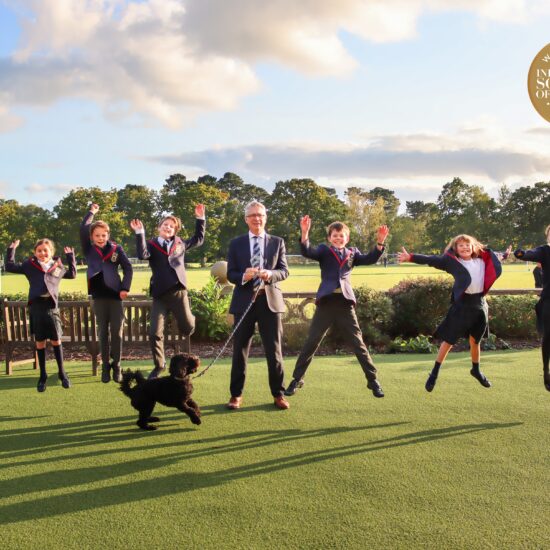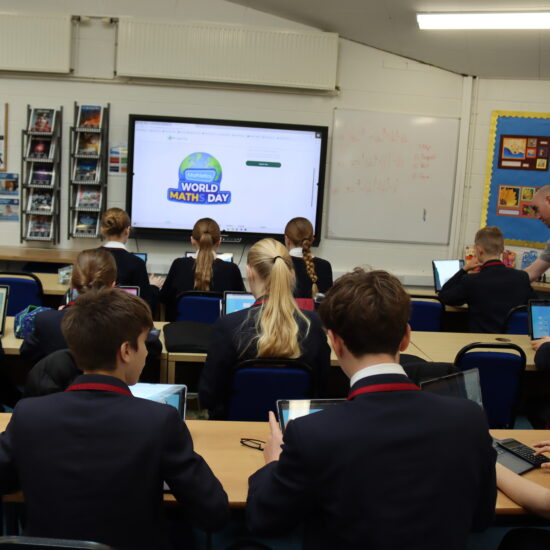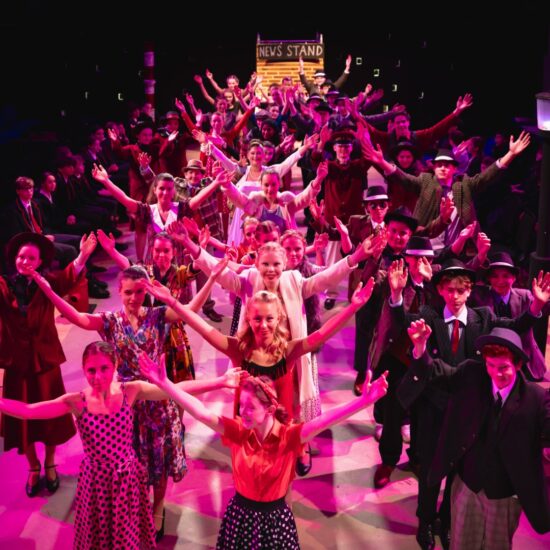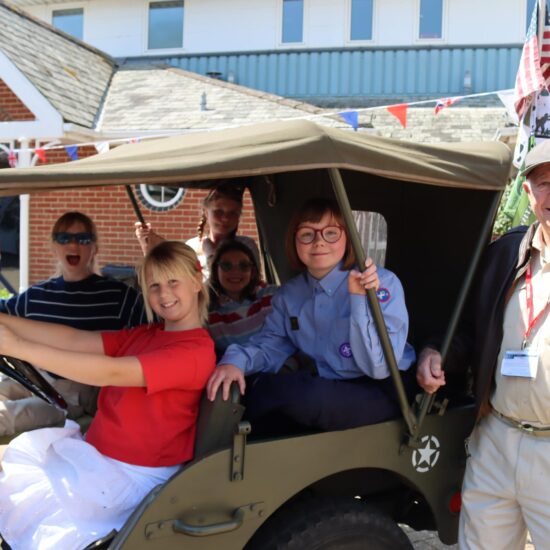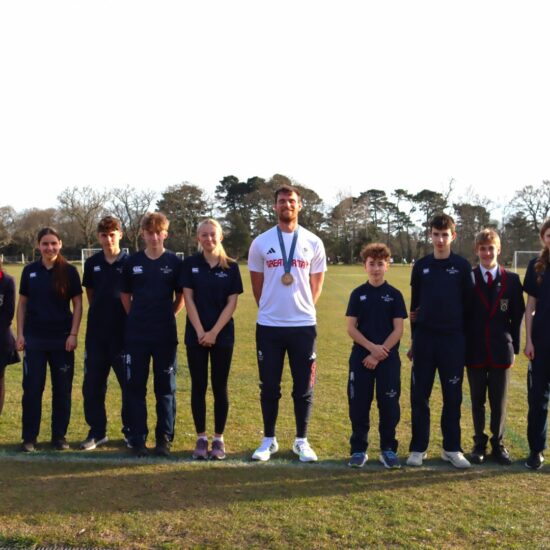Eco
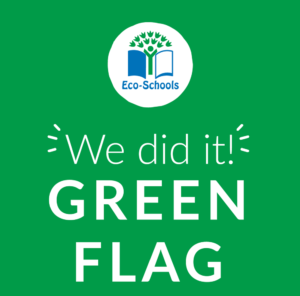 Ballard achieved the highest award from Eco Schools; the coveted Green Flag.
Ballard achieved the highest award from Eco Schools; the coveted Green Flag.
We are currently 28% powered by solar with projects in place to increase this to 41%. We have pledged to be carbon-neutral by 2050.
Recent initiatives include:
- Conversion of all lights to LED, 991 fittings, 75% more energy efficient and better light quality for teaching, 15% less electrical consumption.
- We have purchased two 100% electric minibuses.
- Our Estates team has gone electric with power tools and an electric grounds vehicle.
- We are reducing our dependency on gas by installing air source heat pumps for hot water and heating systems.
- Food waste goes into anaerobic digestion off site rather than landfill.
- We have purchased a bin compactor in order to reduce the volume of waste.
- We have installed a new rainwater harvesting system.
- We plant new trees each year.
- We have signed up to the cycle to work scheme.
Ballard has been passionate about the environment – our own and in the wider world. At Ballard we actively encourage our pupils’ curiosity about nature and the environment, recognising all the benefits this entails academically and pastorally.
We are so lucky to have a number of eco systems within our grounds for wildlife to thrive. The pond helps pupils understand life cycles first hand with frog spawn and the Ballard Mallard’s ducklings.
All pupils from Kindergarten to Year 5 enjoy regular visits to our Forest School as well as plentiful nature walks and opportunities to work outside.
Our pupil-led Eco committee campaigns for green initiatives in school and out, taking part in many local and national initiatives. At home, many plant wild flowers, build bug hotels, bird boxes and bird feeders. We even have a hedgehog watch.
In the last three years, we have introduced Ballard Bees and Ballard Chickens to school.
We consistently try to reduce pressure on the environment. Key initiatives have included; removing single use plastic in school, a tetra recycle centre, solar panels to provide much of electricity and a rainwater harvesting area that provides 8000 litres of water for us to use on our expensive campus.
We have worked on many upcycling initiatives such as making musical instruments from everyday objects and hats and bags from recycled aluminium cans. At forest school, the pupils particularly love making lavender bags from old blankets and cotton which they tie-dye with blackberries. We made sure to pick blackberries from areas where they are abundant so that birds, insects and mammals still have plenty. Our eco ambassadors are now making bees wax wraps from old cotton fabric too.
We regularly promote our eco activities and passion for our world in school. For example, our reflective spaces exhibition invites all members of the community to share their experiences of the natural world and what they can pledge to help protect it.
We continue to look at what we can do as a whole community and what we can do as individuals. We embrace the ‘Wilder’ initiative, as cultural historian, Thomas Berry, stated, “Teaching children about the natural world should be treated as one of the most important events in their lives.

